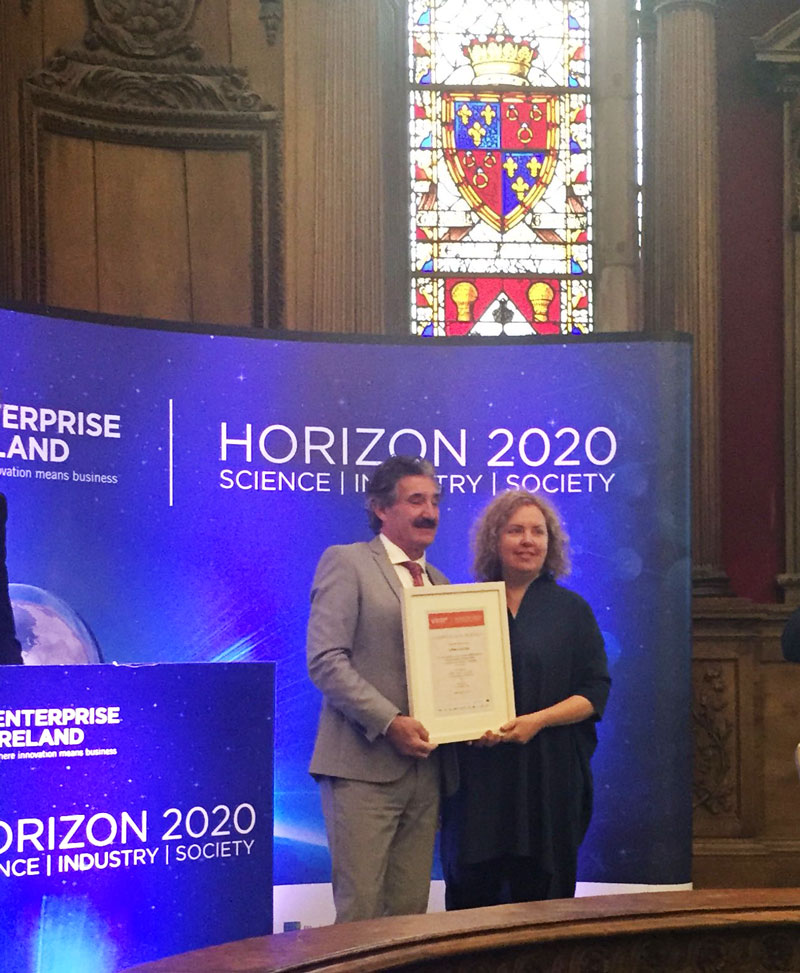Three Trinity staff have been recognised for their success in European research, in a celebration of the contribution of Irish researchers to Ireland’s success at attracting EU funding.
Prof Anna Davies, from the Department of Geography; Prof Poul Holm, Trinity’s Professor of Environmental History; and the Director of Trinity’s Connect Centre, Linda Doyle, all received awards at a Champions of EU Research event, which recognised some of the country’s best researchers.
Davies and Holm received awards for their outstanding achievement in European research, while Doyle won the award for her leadership in the Edge training and development programme. Edge is a new €13 million research programme that was announced last year and is based in Trinity. Working alongside Connect, the programme will see 71 postdoctoral candidates employed across a number of Irish universities and colleges from June onwards.
The event, which saw Minister for Training, Skills, Innovation, Research and Development, John Halligan, award the various researchers, recognised the contribution of the winners to Irish research. Ireland, and Trinity in particular, have had significant success in the EU’s Horizon 2020 programme – receiving millions in research funding from the €75 billion fund.
In a press statement, Doyle said: “The EDGE success has been a team effort. Three Science Foundation Ireland Research Centres – CONNECT, AMBER and ADAPT – have worked together to prepare this new programme which will help to make Ireland a global hub for ICT research.
“The successful candidates will strengthen our existing research groups and provide new collaboration opportunities with research institutes internationally. By offering industry secondment opportunities, EDGE will also further strengthen the relationship between industry and Irish research”, she said.
The Trinity-based Connect centre is funded by Science Foundation Ireland (SFI). Linking together 10 Irish universities and research institutions, it aims to develop and design new methods of telecommunication. The centre already works with numerous international companies, including Google ands IBM.
European funding has enabled me and my team to really push the boundaries of existing knowledge and conduct blue skies research of scale and significance”, Davies said.
Holm said: “Teaching and research constantly encourage us to probe deeper and search wider. I want to thank all the students and colleagues who keep me on my toes.”
Trinity’s researchers have secured over €65 million to support 85 projects, a success for a university that this year joined the exclusive League of European Research Universities (LERU). In a press statement, Trinity’s Associate Dean of Research, Prof Peter Gallagher, said: “Horizon 2020 funding is of significant strategic importance to the University, both to fund existing research and to attract in the best international talent.”







